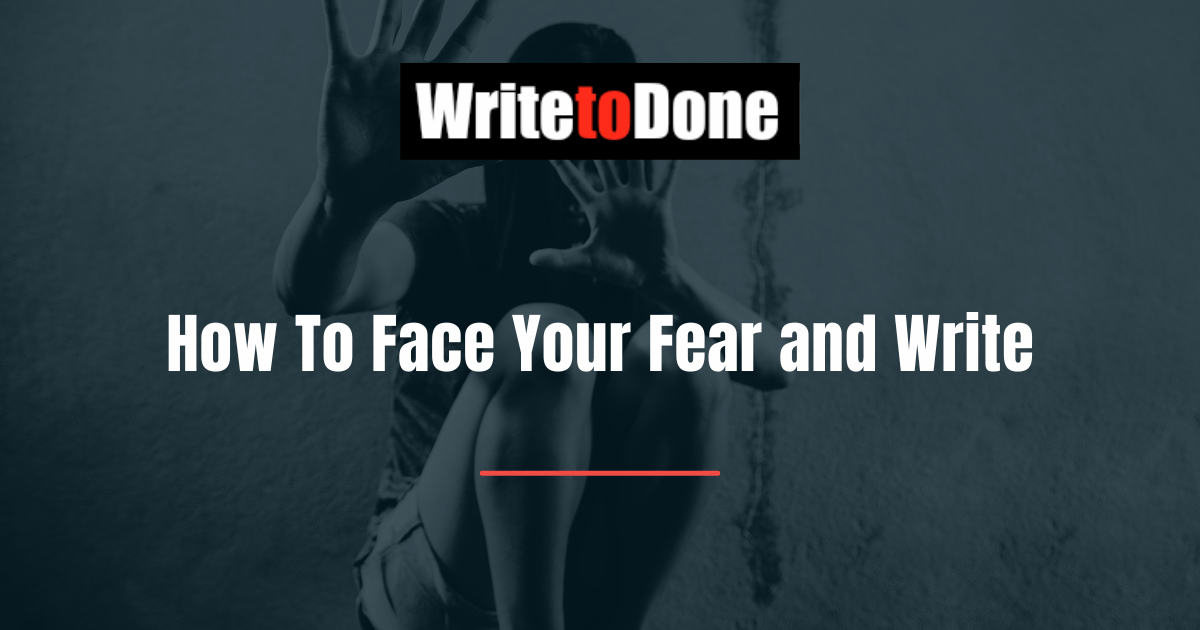Do you want to face your fears and write?
Here is what happened to me…
I was petrified.
I sat with my friends in a glass-bottomed gondola above a mountain in the Swiss Alps.
Why would anyone would want to look down?
After two years of saving money, we’d finally made it overseas, backpacking through Europe. And despite my fear of catastrophe, we also made it to the top of the mountain that day. We breathed the pure, clear air and took in the stunning view.
How I feel about that long-ago gondola ride is the same way I feel about writing: it terrifies me, but it is always, always worthwhile.
Here is how to face your fear and write
Here are 4 tips to help you move forward with your writing in the face of fear.
1. Showing up and obeying quotas
Writing each day isn’t easy. Yet if you just sit down in front of the post or essay you’re working on, you’ll win half the battle right then. (Sit down and click off Facebook, that is.)
The other half of the fight is to keep writing until you reach (or exceed) your daily quota. As Anne Lamott notes in Bird by Bird, setting easy, doable quotas is invaluable for writers. Consistent practice is, perhaps, the most helpful tool for getting out of your own way.
Quotas are your teachers – in obeying them, you learn to keep the faith. When you keep your quotas, you are essentially saying: Even though I am completely uninspired today, even though I’d actually rather be cleaning my bathroom – and oh yes, my bathroom does need cleaning, and I am never more aware of this fact than when it is time to write – I am still here. Because when I commit myself to the words, the ideas commit themselves to me.
Yet, helpful as they are, quotas won’t dispel your fear entirely. You can train yourself to finish what you start, but that doesn’t mean you won’t shy away from the vulnerability and exposure that real writing brings.
2. Getting the first true sentence out
Writing is akin to having a difficult conversation. Sitting down to talk is one thing, but actually telling your truth is quite another. But as the self-help books say, if you can give voice to just one sentence that puts the conversation on track (“I really need to talk to you about … “), the rest will follow.
When you sit down to write, your lackluster warm-up sentences may lead you to wonder: Should I even be doing this? Am I better off cleaning the bathroom after all? If this happens, remind yourself that you’re just one sentence away from real writing. If you just write one sentence that says what you really mean, you can walk away feeling that you have succeeded.
Great writers are simply people who tell stories – one amazing sentence after another. As Leo Babauta recounts, James Joyce was once asked by a friend if he’d had a good day writing. Yes, Joyce replied happily. How much had he written? Three sentences, Joyce told him.
Think small and focus on getting those first words out. Tell the truth, even when the self-protective voices inside your head are screaming at you to shut up.
3. Giving and receiving
It’s all too easy for writers to spend too much time alone. It’s tempting to buy into the myth of the lone wolf. But reaching out to other writers and artists is essential for growth.
You may work alone, but you still need community. You need friends to read your drafts and provide constructive criticism. You need to read other people’s drafts and offer feedback. If you want to succeed, you must help others succeed. If you want to receive, you must give.
Recently, a friend and fellow writer contacted me and asked if we could exchange drafts and offer feedback on each other’s work. I knew right away that I would say yes. I was afraid to receive criticism, but I was even more afraid not to. If I turned down the opportunity, I knew my writing would suffer.
4. Focusing on possibilities
As you begin to write, you may want to rush, to get to the end of your daily quota as soon as possible (so you can go back to reading whatever book you’re in the middle of, of course).
But by the time you arrive at your stopping point, you’ll often find that you want to keep on working. Why? Because you want to stay inside the moment, the story, where everything is possible. When you sit down to begin writing, you’re all too aware of the strikes against your work. But once you’re in process, those worries fall away.
That’s why we writers are happiest when working. When we’re mid-sentence, focused on the work, we get a break from fretting over our usual thoughts (why doesn’t Oprah call?). We get to think about something other than our own neuroses; we get to serve something greater than ourselves. And when we write – really write – the fear just falls away.
Nowadays, when I look back on that gondola ride in the Swiss Alps, the fear isn’t what stands out in my memory. Instead, I remember sharing a delicious chocolate bar with my friends at the summit. When it melted in the sun, we just laughed and ate it with plastic spoons. It was a rich moment, a communion at the edge of the world.
Fear may always be with me, and heights may never be my milieu. But words? Words are like true friends – they give me wings. What helps you face your fears and write? Join the conversation in the comments!
















